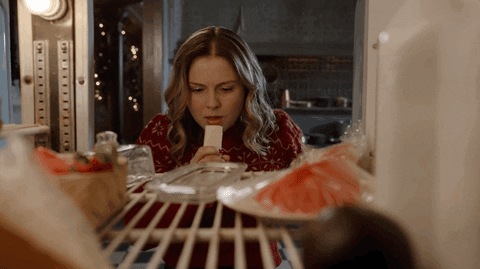- marginal steps
- Posts
- Eating late at night? Why it's impacting your sleep.
Eating late at night? Why it's impacting your sleep.
And what you can do about it
Marginal StepsThe 120 second read improving your lifestyle every Wednesday and Saturday. | Edition #4 - Wednesday June 19th |

Late Night Eating: Your eating routine could be ruining your sleep
↓
EVER WONDERED WHY…
… you wake up and don’t feel refreshed despite getting a solid 7-9 hours of sleep?
It could be because you aren’t getting enough deep sleep, a key phase in your sleep cycle which is most attainable in the first half of the night.
Deep sleep is responsible for knowledge consolidation (it helps transfer short-term memories from the hippocampus to long-term storage in the cortex) and physical restoration (tissue repair/growth and immune system bolstering).
What’s preventing you from getting sufficient deep sleep?
It could be eating or snacking late in the evening.

HOW DO WE KNOW THIS
Eating activates your digestive system and metabolism.
This elevates your core body temperature and heart rate, leaving you physiologically activated.
To get the full benefit of deep sleep, the body needs the correct conditions.
Two of those conditions are a lower core body temperature and a lower, stable heart rate.
Eating close to bedtime, within 2-3 hours, causes the exact opposite conditions.
This makes it difficult for your body to enter deep sleep, causing you to miss out on the benefits it brings.
Hence, you feel sluggish the following day.

WHAT TO DO
If your routine allows, try to leave a 3-hour gap between the last calories you consume and the time you go to sleep to mitigate the impact.
However, I have personally seen my deep sleep increase significantly (by 30% or more) by increasing that gap to 4-5 hours before bed.
I’ve also seen further sleep improvements by reducing the volume of my evening meals, opting instead to have my most calorific meal at lunchtime.
DISC
Sleep is important, but so is ensuring you get the nutrients you need. Do not sacrifice or skip meals to achieve greater deep sleep.
You still need to get your required calories; otherwise, you will end up negatively impacting your health (and sleep) in the long run.
↓
(poll, sources and TL;DR)
FEEDBACK
PLEASE NOTE
I research each topic thoroughly before sending each newsletter. However, by its very nature, the science on the subjects I discuss is ever-evolving. The information, at the time of sending, was accurate to the best of my knowledge.
The information contained in this newsletter is not medical advice, and I am not medically qualified. You should always research independently or consult a medical professional before making any changes to your lifestyle, including on the subject discussed here.
Sources for this installment of Marginal Steps:
TL;DR
Eating late at night elevates your body temperature and heart rate.
These are the opposite conditions necessary to get sufficient quantities of deep sleep.
Therefore, eating late at night results in less deep sleep, which can lead to feeling sluggish despite getting 7-9 hours of sleep.
To prevent this, bring your mealtime forward by more than 3 hours before bed.